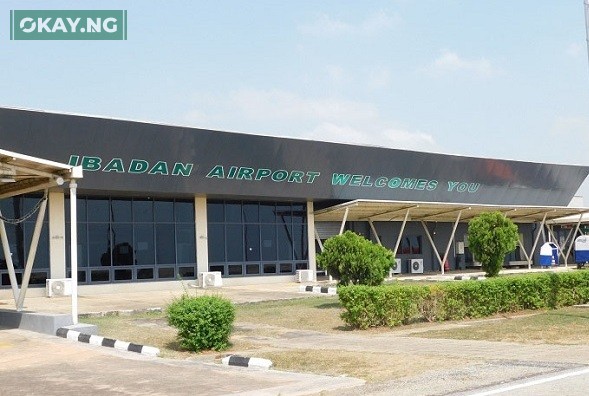The Samuel Ladoke Akintola Airport (SLAA) in Ibadan has been temporarily closed, a move approved by the Federal Government, to facilitate extensive upgrades aimed at transforming the domestic facility into an international gateway. This development, as announced by Mrs. Obiageli Orah, Director of Public Affairs and Consumer Protection at the Federal Airports Authority of Nigeria (FAAN), signals a significant step in Oyo State’s ambitious infrastructure development plans.
“The Federal Government of Nigeria has approved the temporary closure of Samuel Ladoke Akintola Airport (SLAA), Ibadan, due to ongoing upgrade works,” Orah stated, emphasizing the necessity of the closure to ensure compliance with International Civil Aviation Organization (ICAO) regulations. This compliance, managed by the Nigeria Airspace Management Agency (NAMA), mandates a temporary halt to operations to guarantee passenger and personnel safety during the remodeling process.
You might be asking, why this sudden disruption? The answer lies in the state government’s strategic vision to elevate Ibadan Airport, fostering economic growth through improved connectivity. As I see it, this closure, though inconvenient, is a crucial investment in the future. The reality is that for Ibadan to truly compete on a global scale, its aviation infrastructure must meet international standards.
The upgrade, which includes various remodeling and safety enhancements, aligns with the Oyo State Government’s proposal unveiled in August 2024. This proposal outlined plans to expand the airport’s operational capacity, enhance passenger experience, and stimulate regional economic development. As Michael Achimugu, Director of Public Affairs & Consumer Protection at the Nigerian Civil Aviation Authority (NCAA), hinted in February 2025, the possibility of a six-month closure was on the horizon, suggesting meticulous planning behind this current action.
“As part of the Oyo State Government’s initiative to upgrade Ibadan Airport from a domestic to an international airport, various improvements and remodeling works are currently underway,” Orah explained. “In compliance with Aviation safety recommended standards and processes, the closure became imperative to ensure the safety of passengers as well as airport personnel.”
While FAAN has not provided a specific timeline for the reopening, they have appealed for understanding and cooperation from all stakeholders, stressing the long-term benefits of the upgrades. This temporary inconvenience, though disruptive, holds the promise of significant economic and social dividends. Think of the potential for increased trade, tourism, and investment that a fully operational international airport can bring to Ibadan and the broader region.
The implications of this closure are far-reaching. For travelers, it means temporary adjustments and potential delays. For businesses, it signals a period of strategic planning and adaptation. For the people of Oyo State, it represents a tangible step towards realizing the region’s economic potential. This is more than just concrete and asphalt; it’s about connecting people, markets, and opportunities.
The closure of SLAA underscores the government’s commitment to modernizing Nigeria’s aviation sector, a critical component of national development. While the immediate impact may be felt in travel disruptions, the long-term benefits of enhanced infrastructure and international connectivity are undeniable. The hope is that the temporary pain will yield substantial gain.













